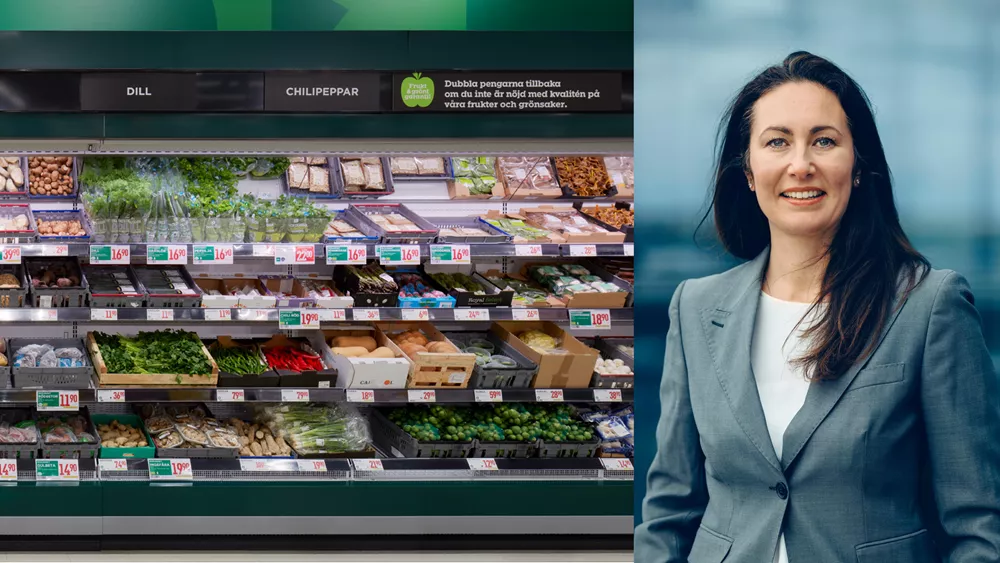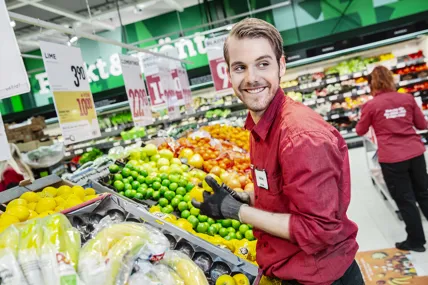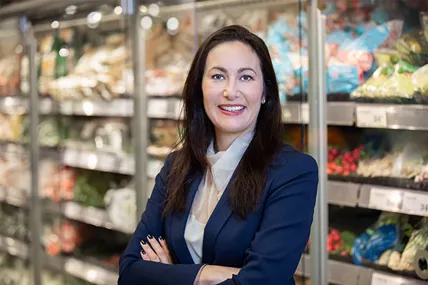The recent rapid increase in food prices has led to greater price sensitivity among many consumers. At the same time, the state is profiting billions from these price hikes through higher VAT revenues. In 2023 alone, the state increased its VAT revenues by nearly SEK 12 billion as a direct consequence of rising food prices. As prices rise and the debate focuses almost entirely on the high cost of food, important issues regarding long-term sustainable and fair food production are being overshadowed.

Geopolitical instability, the war in the Ukraine, rising costs for raw materials, packaging, energy, wages, and rents, the weakening Swedish krona, as well as climate change, extreme weather, and poor harvests are driving up costs throughout the entire food value chain, leading to higher prices.
However, this is not just a Swedish problem. Other countries are facing similar price incerases, and Statistics Sweden (SCB) confirms that the price increases are justified given the sharply rising costs in a food chain where profit margins are already low.
The higher food prices pose several problems. Due to strong focus on prices, many people reduce their consumption of fruits and vegetables and other sustainably labeled foods, such as KRAV, Nyckelhålet, Fairtrade, MSC, and EU organic. The higher production costs of such foods result in these foods being increasingly overlooked as prices rise. This is unfortunate. Sustainably labeled food contributes to improved environmental conditions, public health, social conditions in production, and animal welfare through reduced use of chemicals, improved working conditions, better conditions for animals, and less salt and sugar in food.
Today, food production accounts for approximately 30 percent of the world's total greenhouse gas emissions, 70 percent of all freshwater use, and half of all habitable land. Therefore, the way food is produced plays a crucial role in the planet's ability to continue providing us with food in the future. Without adequate measures to reduce the environmental impact of food, food prices will continue to rise.
Currently, there are no price incentives encouraging Swedish consumers to choose more sustainable food. However, this is an issue that policy can address. Prices can be used as a tool to encourage consumers to make more sustainable and healthy choices. This is also advocated by the EU. The Commission emphasizes the importance of economic incentives in creating a more sustainable food system.
The food sold in a typical grocery store today has differentiated VAT, as the VAT on food is lower than on most other goods. However, the same VAT rate applies to all types of food. Therefore, VAT is not used to make it easier for customers to make better choices. We want to change this. For the past three years, we have proposed reducing or eliminating VAT on sustainably labeled food, such as fruits and vegetables, to make them more affordable. This would enable more consumers to shop more sustainably and healthily. It is a development that benefits both individuals and society.
We propose that VAT on sustainably certified food be reduced or eliminated because third-party certifications have an independent standard owner and are audited by accredited certification bodies. Therefore, transparency and control are better than company-owned concepts. Furthermore, third-party certifications are open to competition, allowing all brands to choose to use the labels.
The government recently presented an updated food strategy that includes several good proposals, particularly regarding preparedness, but lacks sufficient focus on sustainability and its connection to national environmental goals. This is also emphasized by the Swedish Board of Agriculture's report ‘Monitoring and Evaluation of the Food Strategy’. Eliminating or reducing VAT on sustainably labeled food would therefore be an important part of future decisions to strengthen the sustainability aspect of food policy.
Eliminating or reducing VAT on sustainably labeled food not only levels the price difference between sustainably labeled and non-sustainably labeled food. It also provides incentives for the food industry to invest more in sustainable production and motivates more food companies to make changes so that their products meet the requirements for various sustainability labels. In other words, it is an effective way to steer production and consumption towards becoming more healthy and sustainable, both in the short and long term.
This article was published in Dagens Industri 25 april 2025.


